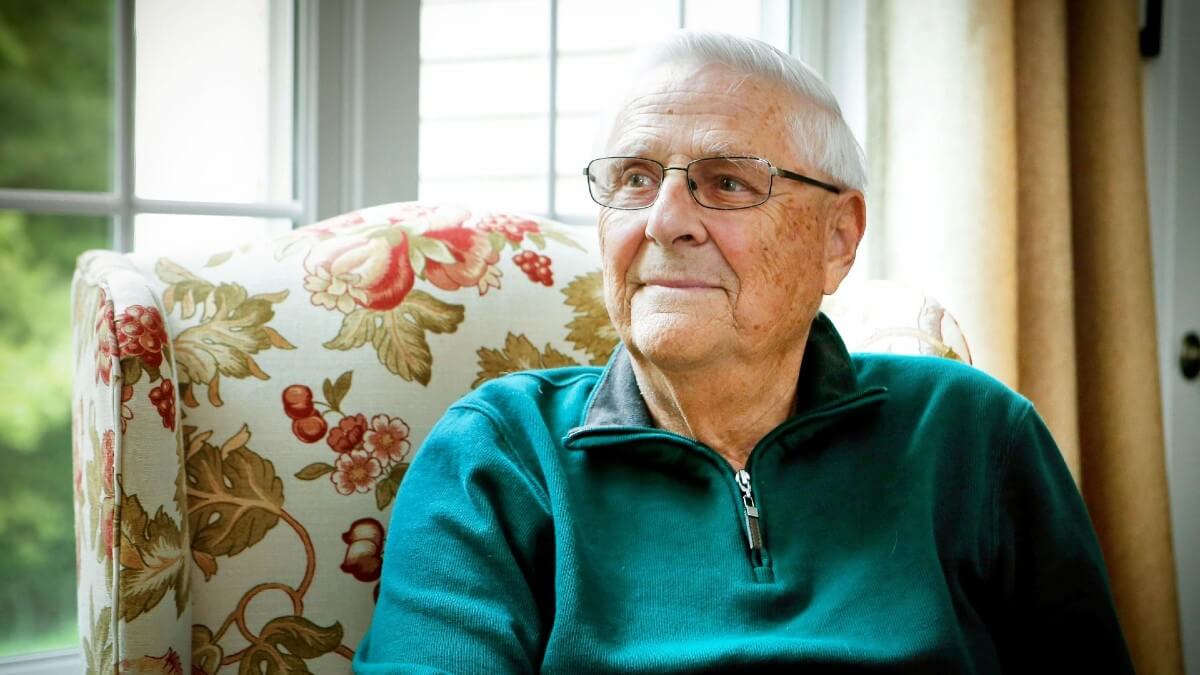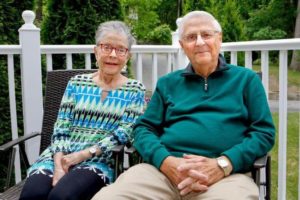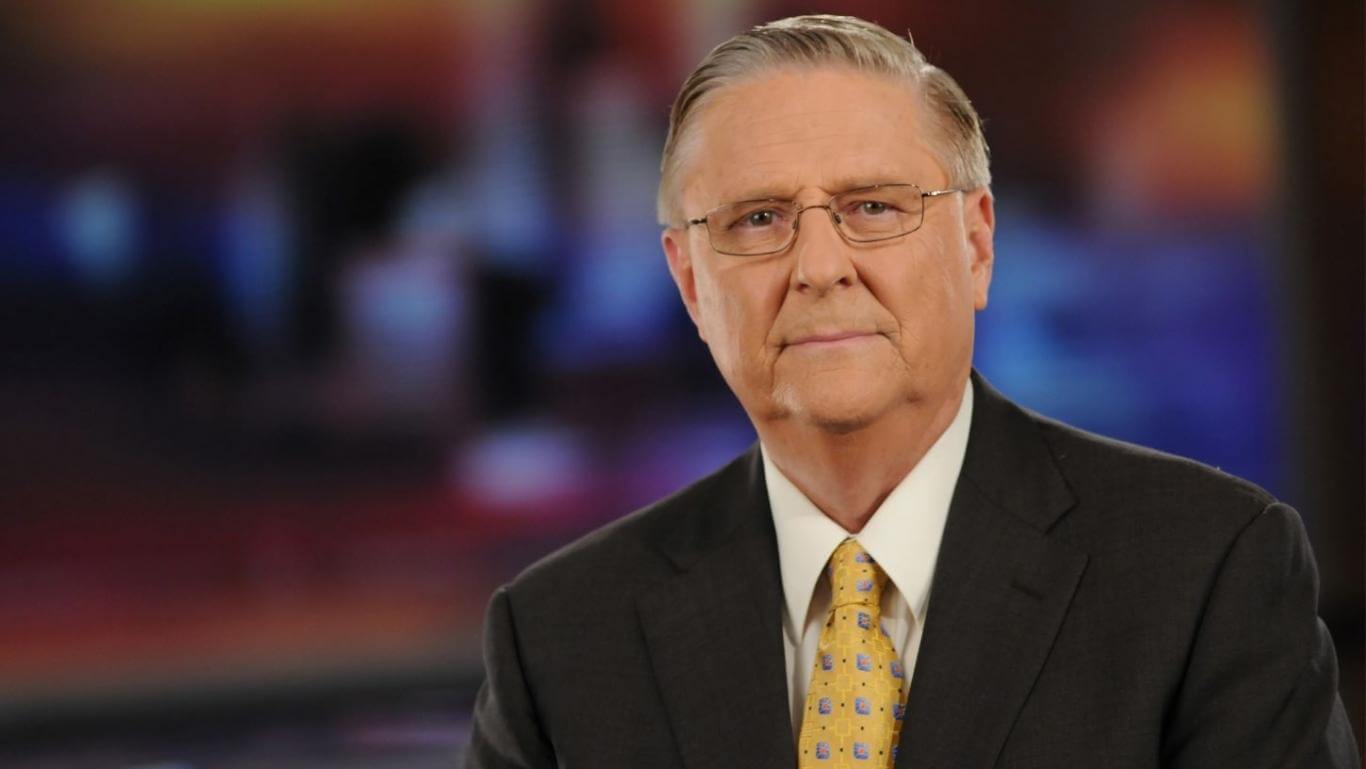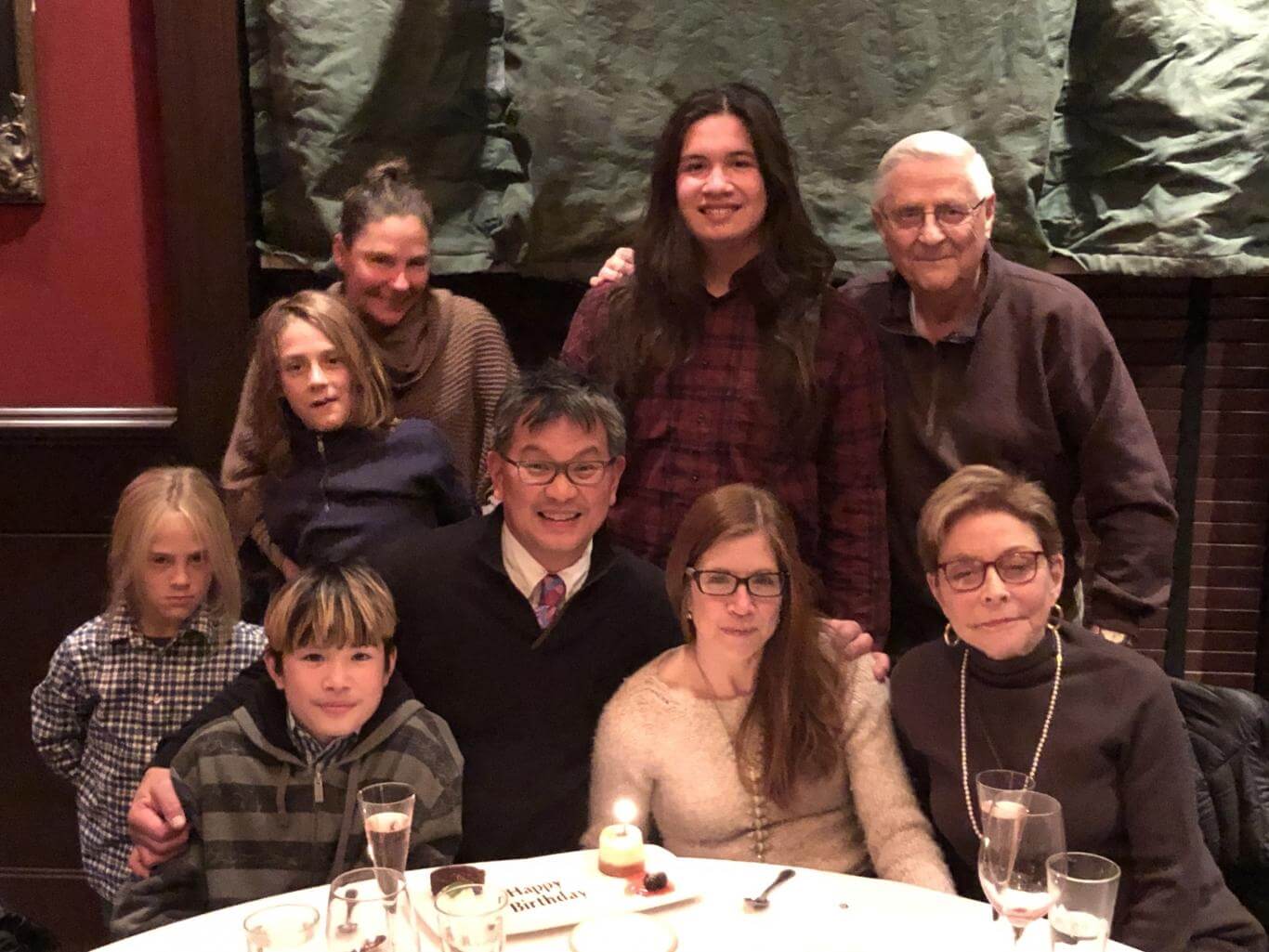Who We Are: ‘America’s Doctor’
Commons resident Dr. Timothy Johnson pioneered TV medical journalism, continues to share expertise

For three decades, Dr. Timothy Johnson was a household name when it came to medical news. The first Medical Editor for ABC News, he was a regular guest on Good Morning America and all the network’s news shows, helping to educate millions of Americans about health care issues and current events.
Soon after retiring, Dr. Johnson and his wife, Nancy, found themselves caught up in the healthcare system he had reported on for so many years. For different reasons, they each needed hip surgery, followed by extensive physical therapy.
And so, Dr. Johnson and Nancy spent their 52nd anniversary in a rehabilitation center, celebrating with spirited “walker races” down the halls.
Months before, the couple had sold their house and moved into an independent living cottage at The Commons in Lincoln. When Nancy fell and broke her hip, they were glad help was a front-desk call away.
“Deciding to move wasn’t an easy choice, but it was a good one,” he says. “And right in the nick of time, it turned out…”
 Called to Serve
Called to Serve
Dr. Johnson was born and raised in the Midwest. After earning his undergraduate degree, he attended and graduated from seminary school to become a minister. But then he switched gears and decided to become a doctor. At 29, he headed east to Albany Medical College and eventually specialized in emergency medicine.
His first job was Director of Emergency Services at Union Hospital in Lynn, Mass., before joining Mass General in Boston.
The hospital’s General Director, Dr. John Knowles, was impressed with Dr. Johnson’s poise and public speaking during medical lectures and events. Dr. Knowles also happened to sit on the board of a new company called Boston Broadcasters, Inc., which took over the license to operate Channel 5, Boston’s ABC station.
When the station went on the air in 1972, he asked Dr. Johnson to host a half-hour morning program called House Call, where he would answer medical questions from the public.
The show was popular, and a couple years later when ABC launched Good Morning America, they asked Dr. Johnson to join as a regular guest. Then in 1984 he made the difficult decision to stop practicing medicine to become the network’s first full-time Medical Editor. In that role, he regularly appeared on other ABC shows, including Nightline and World News.
The Golden Era of TV Journalism
For two and a half decades, Dr. Johnson grew ABC’s Boston office into a powerful research operation capable of reaching hundreds of medical experts with diverse specialties under tight deadlines.
Right from the start, he was impressed with ABC’s integrity when it came to newsgathering. He says they worked hard to get it right, drawing upon real expertise for analysis and explanation, rather than using sources to prove a preset point.
It matched with his cardinal rule: “Never hesitate to say I don’t know.”
Working alongside giants in the industry, like Peter Jennings, Ted Koppel, Barbara Walters, Charlie Gibson, and Diane Sawyer, he never felt pressured to produce an outcome to fit a story angle. Instead, he was free to find and report the truth.
Medical History: Meeting the Moment

In June 1981, the Centers for Disease Control released its weekly report, which included something unusual: five distinct cases of a rare type of pneumonia in five sexually active gay men in Los Angeles.
Dr. Johnson took note of the concerning report and mentioned it during the Good Morning America medical roundup for the week.
The next day, Boston Globe conservative columnist David Wilson wrote a scathing column criticizing him, Dr. Johnson remembers, “For what he called ‘talking about buggery’ on morning TV. He actually wrote that word. Which I would never ever use.”
Dr. Johnson felt he couldn’t let that go unanswered, so he wrote Wilson a personal letter, asserting that while he had every right to his views about morning television, publicly mocking the CDC report could prove a big mistake.
“Well to his great credit,” Dr. Johnson reminisces, “every year [Wilson] had this column about his biggest mistakes — and he led every year with [that incident]. He was a man of honor. It was a terrible mistake. But he owned it.”
The ensuing AIDS epidemic became one of the most significant medical stories of the 80s and 90s. Dr. Johnson was right there through it all, answering questions and sharing medical knowledge with the public.
Because of Dr. Johnson’s breadth of work and influence, Jim Coppersmith, who served as WCVB-TV/Channel 5′s general manager during the 1980s and 1990s, would often refer to his colleague as “America’s Doctor.”
Dr. Johnson would form close personal and professional relationships with Surgeon General C. Everett Koop, as well as the head of the government’s infectious diseases department, Dr. Anthony Fauci. He considers Dr. Fauci a public health hero “of absolute integrity,” applauding his recent efforts during COVID-19.
Throughout his career Dr. Johnson says, he’s felt privileged and proud to play some part in many important medical issues and historic moments. High on that list are two interviews he conducted with President Obama about the fight to pass the Affordable Care Act. A resounding achievement for someone who adamantly believes in health care as a basic human right.
Out of the Spotlight

Dr. Johnson stepped down from the national spotlight in 2009 and three years later retired from Boston’s Channel 5. He wanted to spend more time with Nancy and their two grown children — a daughter born in Boston and a son adopted from Indonesia during their 1968 medical mission — and their four grandsons.
In retirement, the couple remained active, visiting friends and family regularly, helping out in the community and at their church, and wintering in Florida. As complications from Nancy’s Type 1 diabetes increased and their house became too much to manage, they decided it was time to make the transition to independent living.
In 2015, the couple moved into an independent-living cottage at The Commons in Lincoln. Their timing could not have been better.
Because shortly after they moved in, Nancy had to have a kidney transplant.
Dr. Johnson still has the physician’s knowledge to take care of his wife’s medical needs, but for more serious issues it was reassuring to know they could simply call the front desk for assistance. Not to mention how close they were to more advanced medical facilities for treatment.
Active in the Community
At The Commons, the Johnsons formed relationships right away. And from the start they were impressed by the entire staff.
“They know how to pick good people here,” he says.
While keeping ties with their life outside The Commons, they also participate in some of the multitude of activities that fill the monthly calendar. And when they’re not in Florida, Dr. Johnson dusts off his journalism skills to interview residents about their lives, interests, and former careers. The interviews took place in the community’s Great Room and to a packed audience.
When COVID-19 became a local reality, he was asked to share his experience and knowledge by joining the Benchmark Coronavirus Advisory Council, a group of medical and scientific experts providing advice and insight to help guide Benchmark’s long-term strategy and response to the pandemic.
“Benchmark is so grateful to Dr. Johnson for providing his medical and media expertise to the council, as well as offering an invaluable resident perspective to COVID-19 and Benchmark’s response to the pandemic,” said Tom Grape, Benchmark’s founder, Chairman and CEO.
As the personality who helped birth the golden era of medical journalism, Dr. Johnson was amused to note that many of the council members recalled being interviewed by him at some point during his years at ABC.
During his first advisory council meeting, Dr. Johnson applauded the efforts of the group and Benchmark’s foresight to invest in such a critical topic.
“As a resident,” he told the council, “I have been blown away by what I have learned in terms of the effort and expertise that has been assembled to deal with this issue here.”
The Commons in Lincoln


